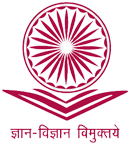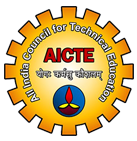About Distance M.Tech in Power System
Distance M.Tech in Power Systems is a 2-year postgraduate , industry-focused degree program with four semesters that offers a thorough examination of both electronics and power engineering, including electrical machines, power electronics, power system operation, and control, etc. Students will have access to e-learning materials and flexible study schedules with this program for working professionals.
The curriculum is intended to prepare Graduate Engineers in the area of Power systems This course's goal is to give students in-depth knowledge of the power system network and cutting-edge computing methods used in electrical networks. It enables students to comprehend the current issues with electrical power generation, transmission, and distribution.
Who Should Pursue Distance M.Tech in Power System
If you meet certain requirements and want to work in the field of electrical power systems, a distance M.Tech in Power System may be a great solution for you. Listed below are some potential applicants who could think about applying to this program:
Working professionals in the power sector
A distance M.Tech in Power System may be a good choice if you are currently employed in the electrical power sector and want to improve your knowledge and abilities in power system engineering without taking a career break. It enables you to manage your obligations at work with continuing your education.
Electrical Engineers
A distance M.Tech in Power System is beneficial for electrical engineering graduates who desire to specialize in power systems and electrical grid infrastructure.
Power Systems Engineers
A distance M.Tech can give advanced expertise in power system analysis, operation, and design for professionals working in power systems engineering or related industries.
Aspiring Academics and Researchers
A distant M.Tech program might be a stepping stone to further research or Ph.D. studies for people interested in a career in power systems research or education.
Geographical Restrictions
People who live in places with restricted access to elite educational institutions offering regular on-campus M.Tech programs in Power System may benefit most from distance M.Tech programs.
Individuals with work or family commitments
A distance M.Tech program gives you the freedom to study at your own speed and place if you have personal or professional obligations that make attending a standard on-campus program difficult.
Professionals involved in power system maintenance and troubleshooting
A distance M.Tech can broaden your knowledge of the components and processes that make up power systems.
Is M.Tech through distance education valid?
Regarding the legitimacy of MTech distance learning, there are certain concerns. There are a substantial number of universities conducting and offering admission to MTech degree programs in the distant mode, but not all of them have gone through the UGC and DEB approval procedures. Candidates who wish to enroll in the Master of Technology (MTech) program must confirm that the universities they have chosen have been approved by the appropriate educational authorities.
University approvals to check before pursuing M. Tech distance education
Anytime, Anywhere



Are You Eligible?
Education
Students with a B. Tech degree are eligible to apply for admission to the appropriate M. Tech program.
Students who have earned an M. Sc. in science, mathematics, computer science, electrical engineering, or a related discipline are eligible to apply for admission to the appropriate M. Tech program.
MCA graduates may also apply for admission to M. Tech. computer engineering branches that are pertinent to them.
Fees for B. Tech Distance Education
50K – 80K Per Year (As fees varies according to universities)

Assessment & Examination
The following steps are commonly included in the exam and evaluation process for M.Tech Engineering students using distant learning:
Internal assessment (IA) : is a part of the evaluation that is based on work done on assignments, tests, and other coursework throughout the semester. IA is normally worth roughly 25% of the course's overall grades, though this varies from institute to institute.
The term-end examination (TEE): is a thorough test that is given at the conclusion of the semester. Normally, the TEE accounts for 75% of the course's overall grades.
Project: In certain institutes, the evaluation procedure includes a project. A research article, a design project, or an internship report are all acceptable project types. Although the weighting of the project varies from institute to institute, it normally accounts for 10% of the course's overall scores.
For each course, the required passing percentage is typically 40%. But certain institutions might have a greater pass rate.
Curriculum
|| Semester I & II
| S. No. | Subject Code |
| MTPS101 |
DSP & its Application |
| MTPS102 |
Power System Dynamics Analysis and control |
| MTPS103 | Advance Power System Protection Relays |
| MTPS104 | Power Electronics Applications to Power Systems |
| MTPS105 | Advance course in Electrical Machines |
| MTPS106 | Lab-I Power Electronics Lab |
| MTPS107 | Lab-II Power System Lab |
| MTPS201 | Reactive Power Control & FACTS |
| MTPS202 | Energy Conservation and Mgt |
| MTPS203 | Power Quality and Conditioning |
| MTPS204 | Restructed Power Systems |
| MTPS205 | Power System Transients |
| MTPS206 | Lab-III Advance Power System Lab |
| MTPS207 | Lab-IV – Computer applications in Power System Lab |
|| Semester III & IV
| S. No. | Subject Code |
| MTPS301[1] | Power System Instrumentation |
| MTPS301[2] | Power Controller |
| MTPS302[1] | Special Machines |
| MTPS302[2] | Advanced Electrical Drives |
Job options
Jobs directly related to your degree include:
| Power Systems Engineer | Power System Planning Engineer |
| Power System Analyst | Power System Protection Engineer |
| Power System Control Engineer | Power System Operations Engineer |
| Grid Integration Specialist | Power System Automation Engineer |
| Transmission Line Engineer | E Power Electronics Engineer |
| Power System Researcher | Power Quality Engineer |
| Energy Storage Engineer | Grid Modernization Engineer |
| Power System Software Developer | Electric Utility Manager |
| Power Systems Consultant | Power Systems Auditor |
| Power Systems Project Manager | Power System Maintenance Engineer |








